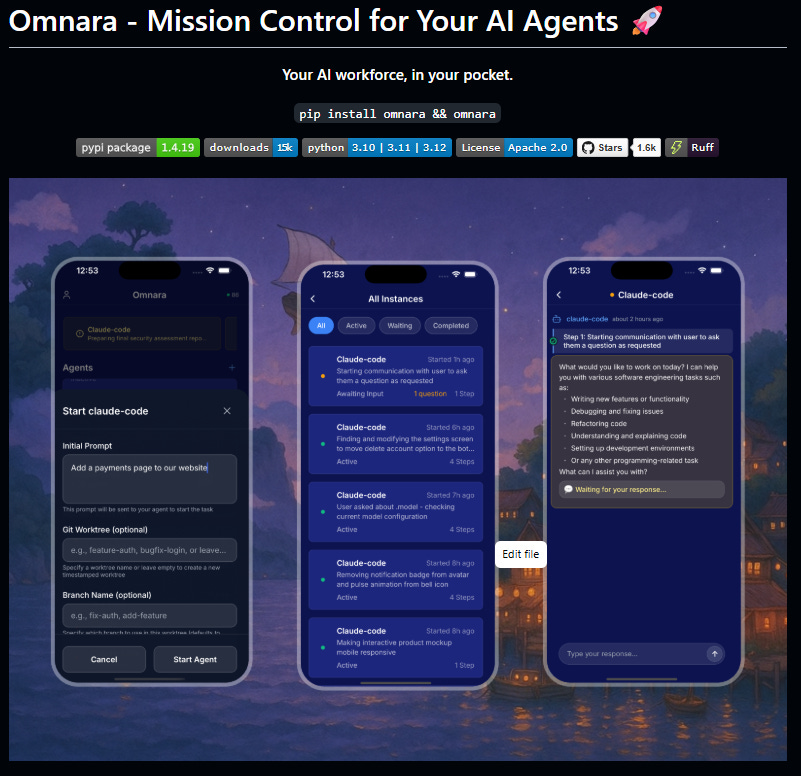[Dev Catch Up # 76] - Claude Sonnet 4 now supports 1M token, how webhooks work, pyx python package registry, Omnara, Open Deep Research Agent, System prompts of popular AI tools, GEPA, and much more!
Bringing devs up to speed on the latest dev news from the trends including, a bunch of exciting developments and articles
Welcome to the 76th edition of DevShorts, Dev Catch Up!
For those who joined recently or are reading Dev Catch Up for the first time, I write about developer stories and open source, partly based on my work and experience interacting with people all over the globe.
Thanks for reading Dev Shorts! Subscribe for free to receive new posts and support my work.
Some recent issues from Dev Catch up:
Join 8000+ developers to hear stories from Open source and technology.
Must Read
Anthropic's Claude Sonnet 4 now supports 1M tokens of context in API. It can now process entire codebases with over 75,000 lines of code. This long context support for Sonnet 4 is now in public beta. Check Anthropic's page to know more details on API pricing and other details.
Webhooks are automatic alerts. One service sends them to another service when a specific event occurs. Webhooks eliminate the need for constant checking. If you’re using polling for event updates, check this post. It explains how webhooks work and why they’re a better option.
Astral launched pyx, a Python package registry. It's a server side for uv. Now that pyx is the backend registry, package installation can be faster, safer, and aware of GPUs. Check Astral's blog post to learn how it accelerates your Python workflow.
LangChain released an open-source deep research agent. It works with multiple AI models. It can run many research tasks at once. It also connects to different tools for improved research. Check the GitHub repo to set up your own research assistant.
OSS Highlight of the Week
This week we are featuring Omnara. It helps you monitor and control your AI agents from your phone. It connects to agents like Claude Code and Cursor through MCP, giving you real-time updates and letting you respond when they need help. Check the GitHub repo if you want to keep track of your AI agents while away from your desk.
Good to know
I have built projects using TypeScript. It has many benefits like catching errors early, better auto-completion, and improved code quality. If you are into development, check this post to understand why TypeScript leads to faster development with fewer bugs.
I came across OneMillionScreenshots webpage, a collection of over 1 million homepage screenshots you can zoom into and explore. They also offer a screenshot API for embedding website screenshots in HTML. Check OneMillionScreenshots for website exploration or their API.
Hardcoding dependencies in classes leads to tight coupling and makes testing harder. Dependency injection solves these issues by decoupling classes. If you face similar kind of issues, check the full post to learn when and how to implement dependency injection.
Many developers use global state to share data across components. But it makes code hard to test and maintain. It's better to pass data directly to components instead of using global state. Check the full post to learn how this method makes your code more reliable and easier to work with.
Many developers still struggle to use AI effectively for coding. There are actually two approaches. Prompt engineering for quick code fixes and spec-driven development for bigger projects. Check the full post to code with AI the way senior engineers do.
Notable FYIs
It's always interesting to see the system prompts of popular AI tools. This GitHub repo exposes the internal prompts and configurations for tools like v0, Cursor, Devin, and Windsurf. Check the GitHub repo if you want to understand how your favorite AI coding tools work behind the scenes.
Anthropic gave Claude Opus the ability to end conversations when users are persistently harmful or abusive. Once Claude ends the chat, users can't send new messages in that chat but can edit and retry old conversations. Read Anthropic's post for full details.
If you are looking for prompt optimization, check GEPA. It is a framework for optimizing text components like prompts, code, or any text. The easiest and most powerful way to use GEPA for prompt optimization is within DSPy. Check the DSPy GEPA tutorials to get started.
Some developers want everything local without cloud dependencies for privacy. This post shows how to build an offline AI workspace using local LLMs and containerized code execution. Check the full post to set up your own privacy-focused AI development environment.
To evaluate deep research agents, we have Deep Research Bench. It's a Hugging Face leaderboard that shows rankings of AI deep research agents. With Gemini Deep Research Agent leading the competition, you can see how different models perform on complex academic research tasks.
That’s it from us with this edition. We hope you are going away with a ton of new information. Lastly, share this newsletter with your colleagues and pals if you find it valuable. A subscription to the newsletter will be awesome if you are reading it for the first time.


